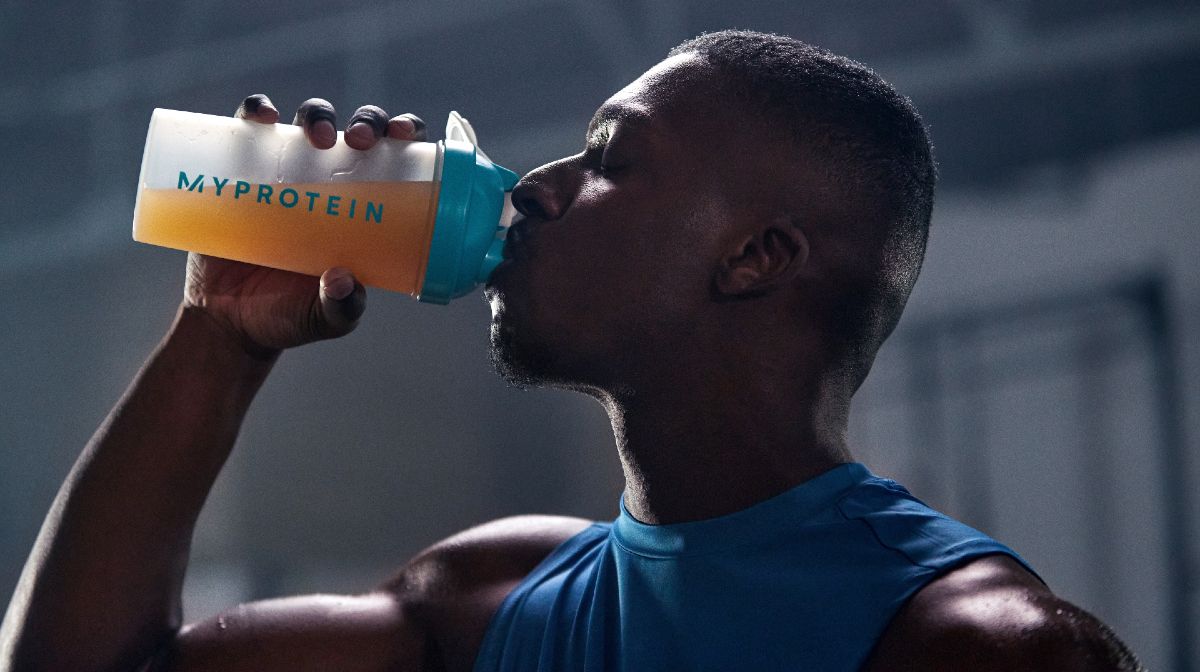
One of the things we get asked a tonne here at Myprotein is “What should I be eating in a day to…?”
We have a wonderfully vast audience; ages, genders, backgrounds and experience levels. Each of you has your own unique set of circumstances, set of goals and reasons to pursue these goals.
You are all well aware of the critical role of nutrition in achieving your goals and this is a fantastic start. However, with all the “expert” advice out there, it’s hard to know what to trust and what actually works.
In this article, we’re going to cover one of your most asked questions “what should I be eating in a day to get stronger?”
We’ll be giving you the critical guidelines to follow which can help you achieve this goal, backed up with the most up to date research on the subject.

The foundations of getting stronger
When the conversation revolves around getting stronger, what we’re really referring to is how we can achieve our muscle generating more force.
Whilst training for strength and training for size are seen as distinctive, it’s important to note that they usually go hand in hand. Generally speaking, more muscle mass will mean more power production. As we get stronger, we typically get larger, and vice versa.
Training plays a key role — it’s our stimulus for change after all. A mix of high and low rep training with varying intensities programmed correctly is what you should be aiming for.
What we’re going to focus on is what you do outside the gym and your training to ensure you’re getting stronger. Let’s look at how we fuel ourselves for growth and recovery, your diet.
The importance of protein
Arguably the most important aspect of getting stronger is… doing nothing. Well, more accurately, how well you recover from your training.
If training is all about breaking muscle down and forcing it to change, then our recovery in between sessions is when we rebuild and adapt.
One of the most critical dietary components to recovery and adaptation is protein.
Protein is essentially the bricks which our muscles require to rebuild. Countless studies have shown the benefits of increased protein intake and protein supplementation on improving muscular strength.1
Experts suggest that we should be aiming to consume between 1.2 – 2g of protein per kg of bodyweight per day.1
The dietary sources of protein we’re aiming to include should be “high-quality” protein sources. This means that these sources of protein provide us with all the essential amino acids (the building blocks of protein) which are critical for repairing and building tissue.
High-quality protein is predominantly associated with animal products, with whey protein being regarded as the best protein source we’re currently aware of. Vegans and vegetarians needn’t fret as combining multiple plant-based protein sources can solve the issue, as can going for a soy-based, or plant protein blend powder.
Eating enough food to get stronger
It’s not just getting enough protein that matters — it’s eating enough too. If protein is the bricks we use to repair and build, ensuring we’re eating enough food acts like the builders. Or, more accurately, the energy required to rebuild and adapt.
We need to consume enough energy to ensure we’re recovering adequately. Eating around our maintenance calorie intake, if not slightly above (give or take 5% above this), will ensure we’re consuming enough to adequately recover.
For those who enjoy maths, sports scientists have recommended we increase our kcal intake to between 44 – 50 kcals per kg of bodyweight when strength gains are the goal.1
When it comes to which fuel we need to consume to recover and perform at our best, it depends a lot on the person and their preferences.2 Whilst it would be advised that the majority of your intake comes from carbohydrates, a ketogenic (high-fat) approach also shows promise for recovery and performance too.
Supplements for strength
We’ll put my hands up here first and say we're definitely guilty of getting excited about supplements. For some reason they just make us feel like some kind of mad scientist when we’re looking at how they work, their different forms and combinations of them to squeeze out even more benefits.
When it comes to strength, whilst there’s a whole library of supplements you could look at, we more or less have our establish “big three”; caffeine, creatine and beta-alanine.
Caffeine
Aside from being literally the greatest thing ever made in the history of forever, caffeine is also pretty great for helping us get stronger.
In fact, plenty of studies have shown a significantly beneficial effect of caffeine on increasing strength performance outcomes in both naïve consumers and those who would be caffeine connoisseurs (a fancy name for someone who consumes just a tad too much).3
Between 100 – 300mg of caffeine before training can have this desired effect. In practice, this looks like a strong black coffee scaling all the way up to a pre-workout.
Creatine
Essentially acting as an energy “recycler”, creatine supplementation has been shown to significantly improve strength performance when supplemented over time.4 This could be down to its effect on increasing power output, how it influences muscle growth and even its influence on cell-to-cell signalling.
Creatine supplementation is typically taken in two ways — either “loading” with it or taking it more consistently. The difference is that a “loading” phase will lead to the benefits of supplementation occurring faster (however can upset some peoples gut).
20g per day split into two 10g servings for 10 days 4 – 6g per day in one serving (post-workout preferably but not essential) for three weeks Repeat this cycle and no need to ever stop taking it
4 – 6g per day on a consistent, day by day basis
Despite internet rumours, there’s never a need to stop taking it. It doesn’t lose its effectiveness over time nor does our body stop producing it naturally. It’s also completely safe (as has been validated by countless studies).4
And just to jump in front of the question before it’s asked; yes, capsules are just as effective as powder if you can’t stand the taste!
Beta-alanine
Beta-alanine is like the batman to creatine’s… batman. They’re both pretty great for increasing strength performance but for two different reasons.5
Beta-alanine acts as a buffering agent of the by-products of lactic acid breakdown. Buffering these by-products may allow you to perform more repetitions and increase time to failure. These benefits may be of particular importance when performing volume-based weight training or AMRAPs.
Increasing time to failure and or the amount of work you can complete will lead to progressive overload — an important factor in forcing adaptation and muscular growth.
The best way to take beta-alanine would be 3g before training and 3g post-training (however, you could start with 1.5g either side of training as it will give you a tingly feeling if you’re new to it and that can be a distraction for training).
Once again, these do come in capsule form. This may be ideal for some of you given the somewhat tangy, punchy flavour of the beta-alanine powder.
Take home message
If the goal is to increase our strength then we have to focus on both what we do whilst we’re training and what we’re doing when we’re not.
Training provides the stimulus; rest and recovery allows us to rebuild and adapt.
Achieving adequate, high-quality protein intake coupled with a slight calorie surplus is a great starting point for those looking to improve your strength.
A supplement stack comprised of caffeine, creatine and beta-alanine is the perfect cherry on top of this gains muffin. And no, gains muffin is not a trademarked term and, on reflection, I don’t think I’ll ever be using those two words beside each other again.

1. Stark, M., Lukaszuk, J., Prawitz, A., & Salacinski, A. (2012). Protein timing and its effects on muscular hypertrophy and strength in individuals engaged in weight-training. Journal of the International Society of Sports Nutrition, 9(1), 54.
2. Kerksick, C. M., Wilborn, C. D., Roberts, M. D., Smith-Ryan, A., Kleiner, S. M., Jäger, R., … & Kreider, R. B. (2018). ISSN exercise & sports nutrition review update: research & recommendations. Journal of the International Society of Sports Nutrition, 15(1), 38.
3. Grgic, J., Trexler, E. T., Lazinica, B., & Pedisic, Z. (2018). Effects of caffeine intake on muscle strength and power: a systematic review and meta-analysis. Journal of the International Society of Sports Nutrition, 15(1), 11.
4. Kreider, R. B., Kalman, D. S., Antonio, J., Ziegenfuss, T. N., Wildman, R., Collins, R., … & Lopez, H. L. (2017). International Society of Sports Nutrition position stand: safety and efficacy of creatine supplementation in exercise, sport, and medicine. Journal of the International Society of Sports Nutrition, 14(1), 1-18.
5. Lee, E. C., Maresh, C. M., Kraemer, W. J., Yamamoto, L. M., Hatfield, D. L., Bailey, B. L., … & Craig, S. A. (2010). Ergogenic effects of betaine supplementation on strength and power performance. Journal of the International Society of Sports Nutrition, 7(1), 27.






